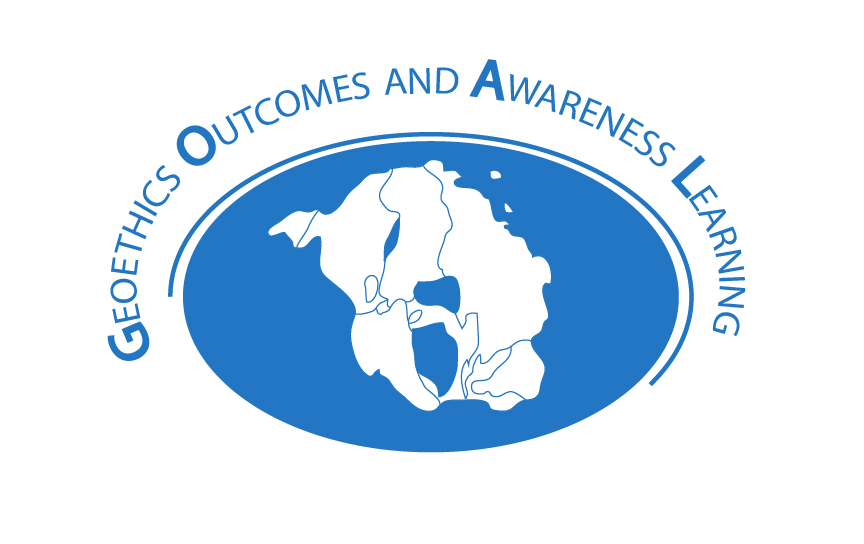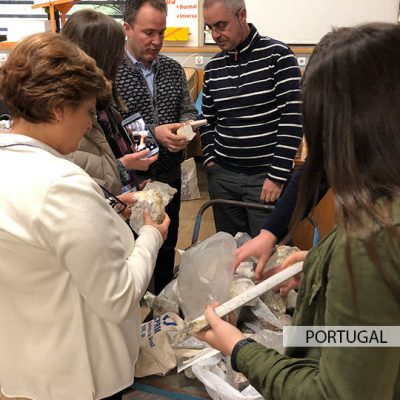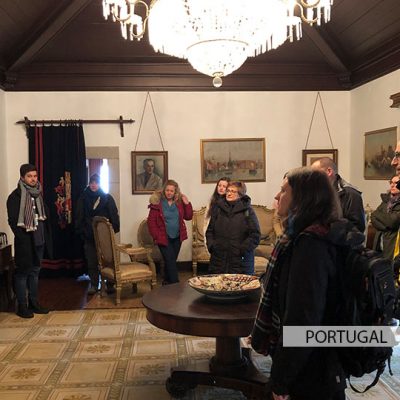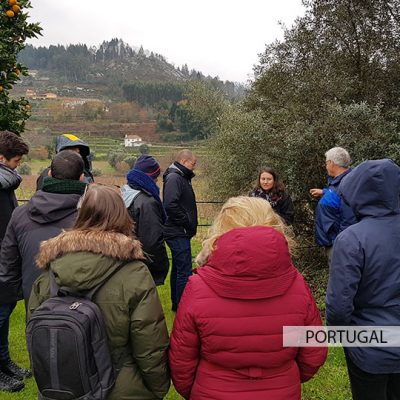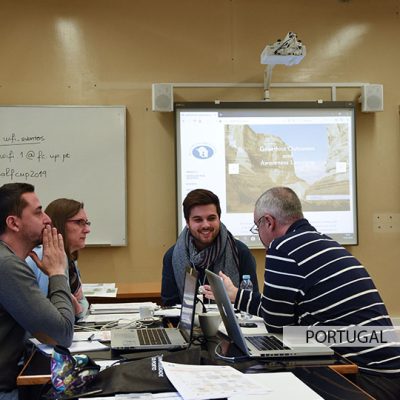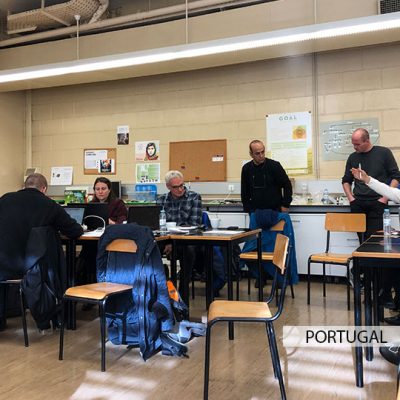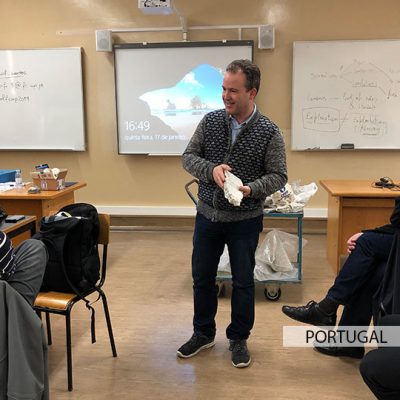
News
GOAL 2nd Workshop
The GOAL 2nd Workshop – Geoethics’ Syllabus and Geoethics in Georesources and Geoparks, held between 14th – 18th January 2019 at Faculty of Sciences of University of Porto (FCUP) – Portugal, was highlighted by the moment that a tree (Taxus baccata) was planted by the GOAL Partners in the garden of autochthones species FCUP. This tree symbolizes the collaboration between the partners and will grow as the project develops and fructifies. This tree was offer by the Projeto FUTURO – 100 mil árvores (http://www.100milarvores.pt), in Porto metropolitan area, that intents to rehabilitate ecologically degraded areas and promote the urban forests.In this workshop besides the Portuguese team (University of Porto), partners from Austria (Universitat Fuer Bodenkultur Wien), Spain (Universidad de Zaragoza), Italy (Istituto Nazionale di Geofisica e Vulcanologia), Israel (Weizmann Institute of Science) and Lithuania (Kauno Technologijos Universitetas) were present.
The workshop comprised working sessions for the syllabus and educational resources development, video pills analysis and intended outputs. Insights on “Geoethics and geological resources” was given. Additionally, two field-trips took place which focused on Geoethics, geological heritage and Earth-systems. The first field trip was to Arouca Geopark, which is part of UNESCO’s European Geoparks Network. This geopark contains 41 geosites and places of geological interest, surrounded by the Freita, Arada and Montemuro mountains. Millions of years ago, this land used to be underwater, inhabited by gigantic animals from the Palaeozoic, such trilobites. Workshop participants visited the Centro de Interpretação Geológica de Canelas (interpretative center), “pedras parideiras” (birthing stones) site, and an enormous waterfall Frecha da Mizarela, making it one of the highest in Europe. This site provided a good base for work in the sense of how the human interaction can cope with the preservation of geological heritage and how Geoethics could be leveraged in this context.
The second field trip was carried out to Paço de Calheiros, Ponte de Lima. This 17th-century Baroque manor house and its surroundings which are classified as “Historic Gardens” and Monument of National Interest. This house is located in one of the Hills steps on the Lima Valley with a breathtaking view of the oldest village in Portugal – Ponte de Lima. The workshop participants were guided by through chestnut forest, wine yards and water systems of the farm, giving an insight on the Geoethics perspective of water cycle nexus Earth-system and georesources. The visit to this site provided the work-base for the reflection about interactions between human activity and the Earth-systems rising a Geoethics perspective within the scope of public awareness, geo-heritage and concerns regarding the teaching and learning of Geoethics.
The program was in alignment with the purpose of the project and boosted the collaboration between partners being a valuable time to enhance future strategies.
(Programme: Erasmus+ KA2 – Cooperation for innovation and the exchange of good practices KA203 – Strategic Partnerships for higher education)

